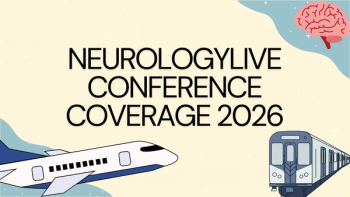
CGRP Antagonist in Treatment of Migraine
Kita Williams, MD, shares her excitement on the availability of CGRP antagonists in treatment of acute migraine and for prevention of migraines.
Episodes in this series

Kita Williams, MD: Regarding the CGRP antagonists and how they fit into the treatment landscape for migraines, we're in a great place where migraines have a plethora of medications from which to choose and headache specialists can have at our disposal several medications that are now targeted to preventing the migraine. That's what we're talking about when we mentioned the CGRP antagonist that came out within recent years. I always jokingly say, and it's a common joke among neurologists, that we borrow medicines from other fields. We found out that this helps to prevent a migraine. For instance, botulinum toxin was not initially used for migraine prevention, it was used for cosmetic reasons, but we found out that this helps. I can go on and on, there are medicines for blood pressure and seizures that we use for a headache, but now we have our own. The introduction of these CGRP antagonists was a huge game changer. They fit into the landscape of management for migraine because they are injectable, they are something that patients can utilize once a month, so your nonadherent patients don't have to consider taking medicine daily. By and large, they are very effective, so I'm elated to have the CGRP antagonists on the landscape for migraine treatment.
Recently, the FDA has approved rimegepant for use as a preventive medication. Initially, it was introduced as a medicine that would help acute migraine attacks, but we also saw that this medication could keep some migraine free for 2 days at a time. Because of that, it has now received an approval from the FDA for prevention. I believe that it opens so much for our patients, and I say that because if they take this medicine every day, what I've seen in my patients is that this has proven to be effective for the treatment of migraine. Taking something every other day can now help their headache, so they're not having to take a medicine daily. It is effective for them, it’s good for patients who don't want injections, don't like injections, or have a fear of injections. Now they can take this medicine that not only is oral, but dissolves without needing water, so they can pop it in their mouth, under their tongue, and it will dissolve; it's an oral disintegrating tablet. It changes the game in so many ways. You're a patient who is busy, who does not have time to stop for water, you can just pop it and go. It's amazing for our patients to have this as an option. I'm happy to write for this medication, and I'm excited when I hear how they are doing on this medicine.
There has been a recent approval for atogepant, and that medication is designed to prevent migraines. The reason that this medication has been so beneficial in the migraine arena is because as specialists who treat migraine headaches, we're always looking for other options for patients who have migraines on a regular basis. Often a patient may have tried some of the older medicines for treatment of their prevention of their migraines, and they were not able to tolerate them due to adverse effects. Maybe it causes some tingling, maybe it was something that they couldn't take if they were trying to conceive any number of things. When we have other options that are available to patients for the prevention of migraine, like atogepant, it's a game changer for them. Atogepant has been approved for once-daily prevention of episodic migraines in adults, and my patients who are taking it have noticed a complete difference. They have stated that their quality of life is much better now that they have something that is preventing their headaches. I am always excited for the FDA to approve a medication for prevention of migraine, because one size doesn't fit all, some medications work for some patients and some simply do not. We need as many options available to us as we can get.
Transcript Edited for Clarity
Newsletter
Keep your finger on the pulse of neurology—subscribe to NeurologyLive for expert interviews, new data, and breakthrough treatment updates.










